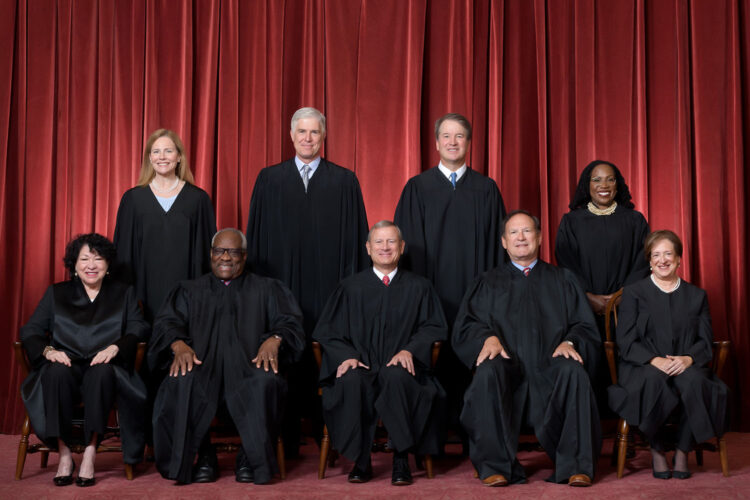The U.S. Supreme Court issued a series of unanimous decisions this week, resolving contentious disputes and clarifying legal boundaries on discrimination, religious tax exemptions, gun manufacturer liability, and environmental regulations. Handed down by June 5, 2025, these rulings addressed pressing issues, shaping policies and lives across the nation.
In Ames v. Ohio Department of Youth Services, the Court tackled a claim of workplace discrimination. Marlean Ames, a heterosexual corrections officer from Ohio, sued after being demoted and passed over for promotions in favor of less-experienced gay and lesbian colleagues. She argued this violated Title VII of the Civil Rights Act of 1964, which bans employment discrimination based on sex, race, and other traits. Lower courts had split, some doubting a majority group member could claim bias. In a 9-0 ruling, Justice Ketanji Brown Jackson wrote that Title VII protects all individuals equally, regardless of majority or minority status. “The statute’s text bars discrimination ‘because of’ sex—full stop,” the opinion stated. The decision clarified that no one, whether in a historically dominant group or not, can face bias in hiring or promotions, sending a clear signal to employers to ensure fair practices across the board.
Next, Catholic Charities Bureau v. Wisconsin addressed religious tax exemptions. Wisconsin denied a tax break to Catholic Charities, claiming its social services—food aid, housing support—were secular because they served all faiths without preaching. The state’s supreme court upheld the denial, arguing the group’s work lacked a religious core. On June 5, 2025, the U.S. Supreme Court unanimously reversed this in a decision penned by Justice Sonia Sotomayor. Citing the First Amendment’s Free Exercise Clause, the ruling held that states must treat religious organizations neutrally, not penalizing them for serving broadly. “Wisconsin’s exclusion of faith-based groups from benefits open to similar secular entities violates constitutional neutrality,” Sotomayor wrote. The decision ensures religious nonprofits—hospitals, shelters, and charities—can claim tax exemptions on equal footing, bolstering their financial capacity nationwide.
In Estados Unidos Mexicanos v. Smith & Wesson Brands, Inc., Mexico sued U.S. gun manufacturers, alleging their lax controls fueled illegal firearm smuggling, arming cartels and driving violence across the border. Seeking billions in damages, Mexico claimed the companies’ practices violated federal law. The Supreme Court, in a 9-0 ruling authored by Justice Elena Kagan, dismissed the suit on June 5, 2025. The decision hinged on the Protection of Lawful Commerce in Arms Act (PLCAA) of 2005, which shields gun makers from liability for misuse of their products. “Mexico’s claims do not meet the narrow exceptions Congress carved out for direct causation,” Kagan wrote, noting insufficient evidence tied the firms’ actions to the specific harm. The ruling reinforces the PLCAA’s broad protections, frustrating critics who argue it blocks accountability, while supporters see it as preserving a key industry.
Finally, Utah Department of Transportation v. Environmental Defense Fund narrowed the scope of environmental reviews. At issue was an 88-mile railroad in Utah to transport crude oil, challenged by green groups demanding the National Environmental Policy Act (NEPA) cover upstream drilling and downstream emissions impacts. Lower courts had debated NEPA’s reach. In a unanimous June 5, 2025, decision, the Court ruled for Utah, holding that NEPA requires only analysis of direct, reasonably foreseeable effects of the project itself—not distant ripple effects. The opinion, written by a justice not specified in early reports, stated, “Congress set limits to NEPA’s scope; extending it too far risks paralyzing development.” This clears the way for the rail line and similar projects, easing burdens on builders, though environmentalists warn of overlooked climate consequences.
These 9-0 rulings, rare in their unity, reflect the Court’s focus on statutory text and constitutional clarity. They reshape workplace rules, affirm religious equity, shield gun makers, and streamline infrastructure, leaving a lasting mark as the term continues. More cases—on guns, voting, and healthcare—await, promising further debate.

